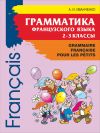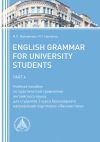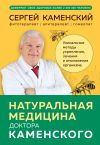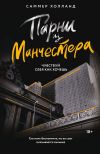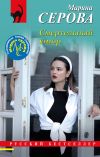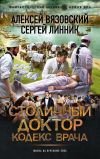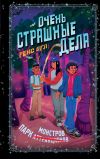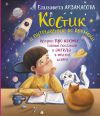Текст книги "Sentence Builder"
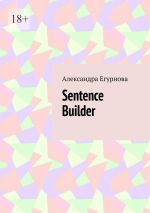
Автор книги: Александра Егурнова
Жанр: Языкознание, Наука и Образование
Возрастные ограничения: +18
сообщить о неприемлемом содержимом
Текущая страница: 5 (всего у книги 7 страниц)
Language Focus
Exercise 1. In the following sentences find adverbial clauses and define its type.
The Smithsonian’s National Zoo in Washington D.C.
1. A new kind of animal-themed attraction has captivated visitors since The Smithsonian’s National Zoo was opened this past November. 2. In spite of the fact that the zoo's Speedwell Foundation Conservation Carousel looks like any ordinary merry-go-round, it is special in two ways. 3. First, it's solar powered; one of only two carousels in the world which run on sunlight. 4. Chuck Fillah, the zoo’s associate director of planning, says the idea of solar power came about because the zoo wanted to send a message about conservation. 5. She pointed at the rooftop where they had installed 162 solar panels. 6. “Each one generates so many watts of electricity,” says Fillah, “that the power generated during the day by the sun runs the carousel.” 7. Excess energy captured by the solar panels is routed to the zoo’s grid so that it can power lights for the buildings and animal exhibits. 8. “I think it’s great that it’s solar-powered as it shows that you don’t need all this technology to have a fun ride,” says one of the young visitors. 9. The carousel's other special feature is the 56 hand-carved and painted figures that represent creatures living in exhibits at the zoo or at its research facility. 10. Chuck Fillah says they put the animals together in grasslands, oceans, desert and forest as if they were in their usual habitats.” 11. “I think that will be really cool if it brings awareness to the animals,” says Fiona, another young visitor. 12. “And we get to see what animals are endangered and maybe we can look in a little deeper and see how we can help those animals.” 13. Although children are enjoying themselves, they are, nevertheless, learning what the conservation message is all about. 14. When they go away they may be thinking about something they learned here.
Exercise 2. Peruse the given statements and choose the correct subordinating conjunction to fill the space at the beginning of the adverb clause.
provided that in spite of the fact that so that since
due to the fact that because for when such…that as
until if although like where
1. … the World Health Organization has stated, an estimated 10 percent of people in Sierra Leone are living with a disability. 2. … Sheka Conteh saw the police were hiring disabled people, he jumped at the opportunity to apply. 3. … he is a disabled person, it has been a challenging journey for him to find employment. 4. “I've faced a lot of discrimination, but I've started to see positive changes, … it is now minimizing, especially in areas of employment,” he said. 5. Francis Munu, the inspector general of the Sierra Leone police, says, … the Disability Act was passed in 2011, providing employment for those with disabilities has become a priority for the police force. 6. He says they need to engage people and communities … people can have trust and confidence in the police. 7. “Those with disabilities bring … a different face to the job … people understand that policing is not just about using force all the time,” he explained. 8. … none of the disabled officers are currently working on the street that could happen in the future, says Munu. 9. “We are going to develop our plans … we change the way people perceive disability issues and even the way disabled perceive themselves. 10. So … they see some of their colleagues being gainfully employed, then they are also motivated to work hard at school and try to invest in themselves,” he said. 11. … police force hirings are a step in the right direction, more needs to be done. 12. Kabba Franklyne Bangura, president of the Sierra Leone union on disability issues, hopes things will now start to move at a quicker pace … 95 percent of those with disabilities in Sierra Leone are unemployed. 13. … the disabled are given the opportunity, they can make progress in any job sector … they are qualified to work. 14. “The advice I can give is any opportunity that comes their way, let them grab it and make good use of it … I have done,” Shekah Conteh says.
Exercise 3. Match the parts of the given complex sentences and translate them.

Exercise 4. Read the following sentences and say whether the words in bold are conjunctions, prepositions or adverbs.
1. I shall not go unless the weather is fine. 2. When we first met, we had a row, and we have rowed frequently ever since. 3. The words tumbled out so fast that I could barely hear them. 4. She is responsible for the efficient running of their department. 6. Where people were concerned, his threshold of boredom was low. 7. As she grew older, she kept more to herself. 8. The problem was finally, though not conclusively, identified as a severely pinched nerve. 9. She had a sort of breakdown some years ago, and since then she has been very shy. 10. He felt guilty, for he knew that he bore a share of responsibility for Fanny's death. 11. Just where is all this leading us? 12. As bad money drives out good, so does bad art drive out the good. 13. I like him. Though he makes me angry sometimes. 14. They say nothing unless a mere “yes, Sir” or “no, Madam”. 15. People began looking across to see where the noise was coming from. 16. Delegates were delighted, since better protection of rhino reserves will help protect other rare species. 17. She has suffered from depression since she was sixteen. 18. This is no party question, for it touches us not as Liberals or Conservatives, but as citizens. 19. You will be informed of its progress, slow though that may be. 20. It tasted as grape juice but not as sweet.
Exercise 5. In most of the lines in the following text, there is an unnecessary word. For questions 1-26, find the unnecessary words and write them on the lines provided. If you think a line contains no unnecessary word, put a tick (√) next to it.

Exercise 6. Find and correct the mistakes in the following sentences. Mind there is only ONE mistake per sentence.
1. It was until she had arrived home that she remembered her appointment with the doctor. 2. I couldn’t think of a single thing to say before he'd replied like that. 3. There was so a lot of material to cover that Ivan found it difficult to keep up with his studies. 4. We want to visit a place where is celebrating the New Year. 5. I will let you use my data in condition that you acknowledge my project in your bibliography. 6. Because the number of families with access to the Internet has risen sharply in the past decade, what tends to be overlooked is that many households can’t afford the fees for this service. 7. His dog follows after him where he goes. 8. Due to the server crashed, the web site was unavailable and the company lost a lot of money. 9. Though the Constitution was signed, Delaware became the first state to ratify it. 10. The green leaves of the banana trees are as thick that the sunlight cannot pass through. 11. If they acknowledge the benefits of learning English for employment purposes, many scholars are concerned that some students learn English at the expense of their first language. 12. As one person intentionally takes the property of another without legal justification, the crime is called theft. 13. In spite of the fact that it discourages their children from socializing and sleeping, some parents are quite wary of having a computer at home. 14. Some people report that they feel “naked” as if they forget their phones at home. 15. Since it is very popular, many older people do not know how to use the Internet. 16. There were so many books on the subject that Cindy didn’t know what to begin. 17. It is very difficult to stop the cultivation of marijuana when it grows well with little care.
Exercise 7. Finish the following main clauses so that you can give proper and full answers to the following questions.
1. You wouldn’t have so many accidents … (Under what conditions?). 2. It was a mistake to go out without an umbrella … (Why?). 3. Some teens are using words that used to be found only in text-messages, such as, LOL, BRB, … (When?). 4. Her new dress fitted her … (In what way?). 5. It was such an interesting match … (What is the result of the action?). 6. The farmers managed to gather a bumper crop of corn … (Why was this unexpected?). 7. Alison smoked thirty cigarettes a day … (What is the result of the action?). 8. They think that my youngest brother’s a layabout … (What is the reason for thinking so?). 9. I didn’t start learning a foreign language … (Till what time?). 10. (What prevented us from doing this?) …, we would have invested our money in the stock market last year. 11. Susan is working very hard for her final exams at school … (For what purpose?). 12. She put the shirt back on its place … (What caused this?). 13. I didn’t get the job I applied for in Barcelona … (Why did it happen?). 14. Many citizens are dissatisfied with the government … (How long?). 15. He said he was happy (In what place?). 16. Johan can speak English … (How?). 17. She wiped her face with the back of her hand and looked … (Where?). 18. I wouldn't eat fish … (Unless what?). 19. (Why is this surprising?) …, camping trailers are smaller and more compact than travel trailers. 20. It is such a beautiful day today … (What are the consequences of the situation?).
Exercise 8. Use each of the complex sentences below as the model for a new sentence of your own. Ask your group to translate them.
Model:
Whenever I look at a mountain, I expect it to turn into a volcano.
Whenever I bite into an apple, I expect a worm to crawl out any minute.
1. They make allegations which, when you analyse them, do not have too many facts behind them. 2. The lecture was boring and irrelevant, with the result that some of the students began to fall asleep. 3. Before the 1700s, when children worked together with adults, childhood as we know it did not exist. 4. While he was working as a clerk, Edison spent much of his time studying the stock ticker. 5. Although the dolphin lives in the sea, it is not a fish – it's a mammal. 6. Due to the fact that the server crashed, the web site was unavailable and the company lost a lot of money. 7. If the government increased the basic rate of income tax to 50%, the public would be outraged. 8. Many people prefer a PDA to a desk computer in spite of the fact that the screen size is very small. 9. Many students opt for practical subjects at university because they believe that these courses offer better career prospects. 10. The air whistled around me as I ran down the dark street. 11. Even though he wasn't feeling very well, David was determined to take part in the inter-university athletics meet. 12. The five-cent coin looks very Canadian since it has a picture of a beaver on it. 13. The company conducted a detailed survey in order that it can gauge its clients’ views. 14. I am prepared to extend the deadline for the assignment provided that you have a valid reason. 15. Since the first pair of pants did not fit properly, he asked for another pair. 16. There were so many people trying to leave the burning building that the police had a great deal of trouble controlling them. 17. John behaved ungentlemanly at the competition with the result that he was ostracized by the other members of the country club.
Exercise 9. Translate the following sentences into English.
1. Он выглядел бодрым, несмотря на то, что провел бессонную ночь. 2. Она говорит о Париже так, как будто была там лично. 3. У них была такая свирепая собака, что никто не осмеливался пройти мимо их дома. 4. Он сказала нам сесть на заднее сидение машины, чтобы мы могли поговорить. 5. После того как члены жюри выслушали свидетельские показания, они вынесли приговор. 6. Пока они были в отпуске, они позволили своей почте накапливаться в почтовом отделении. 7. Она была в шубе, хотя день был очень тёплый. 8. Мне пришлось на время остановиться, так как я уже не мог следить за дорогой. 9. Когда им сказали, сколько будет стоить поездка, они решили остаться дома. 10. Ты не знаешь, чего ты можешь достичь, пока не попытаешься сделать это. 11. У него такой голос, как будто у него ангина. 12. Студентам нравился курс профессора, потому что он практически не задавал домашнего задания. 13. Как только кальций вступает в контакт с водой, он сразу образует гидроокись. 14. Люди на вечеринке беспокоились о Джанет, потому что никто не знал, куда она ушла. 15. Ларри был так поглощен своим романом, что забыл про обед, который готовился на плите. 16. Ничто не могло стереть из памяти людей жестокость их бывшего лидера, несмотря на то, что уже прошло много лет. 17. Хотя авиакомпания увеличила стоимость авиабилетов, многие люди все же предпочитают летать на самолетах. 18. Мой брат сейчас в отпуске в Крыму, мне бы хотелось, чтобы он был здесь и помог мне отремонтировать машину. 19. Наш учитель химии так объяснил эксперимент, что сразу стало понятно. 20. Он не может получить эту работу, пока у него нет пятилетнего стажа вождения автомобиля.
Exercise 10. Rewrite the following text turning the given sentences into complex sentences, each with an adverbial clause. You can rearrange or add words in the sentence to make it sound better, but only if it's necessary.
Model:
Amyotrophic lateral sclerosis, better known as ALS, is a rare but devastating neuromuscular condition with no known cure which is nearly always fatal.
Though amyotrophic lateral sclerosis, better known as ALS, is a rare disease, it is still a devastating neuromuscular condition. Moreover it is nearly always fatal because there is no known cure for it.
Eating Colorful Produce May Help Prevent ALS
Amyotrophic lateral sclerosis, better known as ALS, is a rare but devastating neuromuscular condition with no known cure which is nearly always fatal. However, a new study in the Annals of Neurology suggests preventing the paralyzing disease might be as simple as eating a diet of brightly-colored fruits and vegetables. ALS is believed to result, in part, from damage to motor neurons in the brain and spinal cord. For reasons not fully understood, corrosive oxygen molecules, called free radicals, overwhelm the body's cell maintenance and repair systems, inflicting irreversible damage on the nerve cells, causing progressive, and eventually total, paralysis. Eating brightly-colored fruit and vegetables, such as red peppers, carrots and kale, which are rich in anti-oxidants, may head off or slow the development of ALS, according to Alberto Ascherio, professor of nutrition at Harvard University's School of Public Health in Boston, Massachusetts.
Bright red, orange and green produce contains natural compounds known as carotinoids, in particular beta-carotene and lutein, which are known to counter the harmful effects of oxidative stress. “So, if it is true that carotinoids could reduce the risk, there is the possibility that it could also slow the disease process in people who have the disease; we don’t know that yet,” Ascherio says. “But we are trying to find clues about things that may help people with the disease.” Ascherio and his colleagues analyzed data on one million people who took part in five large studies which tracked changes in their health as they aged. Information on the volunteers came from the National Institutes of Health’s Diet and Health study, the Cancer Prevention Study, the Multi-ethnic Cohort, the Health Professionals Follow-Up Study and the Nurses’ Health Study.
About 1,000 of the participants eventually developed ALS. “We found that the group of people with the highest level of carotenoid intake had about a 25 percent lower risk of developing and dying of ALS,” Ascherio says. Researchers also found that study participants who consumed the most carotenoid-rich foods tended to exercise more and eat foods containing a lot of vitamins C and E. However, investigators found that those vitamins did not reduce the risk of ALS.
ALS is also known as Lou Gehrig's Disease, after the famed American baseball player who was diagnosed with the disease in 1939.
Exercise 11. Also, try writing your own complex sentences using different subordinating conjunctions. For additional practice, use new vocabulary from a recent class.
Exercise 12. Make up a story that can be finished with the following proverb: “While there is life there is hope.” Find a proper place for at least 5 complex sentences with adverbial clauses.
Answer Key
Compound Sentence
Exercise 1.
3. Ulysses wants to play for UConn Huskies, but he has had trouble meeting the academic requirements. 4. My grandmother has stayed up late four nights in a row; as a result, she cannot seem to get well. 5. Harold wants the Boston Red Sox to win the World Series, yet his favorite team is the Baltimore Orioles. 6. The union leaders wanted to strike, for the union members were not being paid a living wage. 7. Your resume looks quite promising, so we are anxious to hire you. 8. The President’s recommendation called for a tax increase; very few senators will vote for it. 10. Kyle refused to eat the salad served with the meal, nor would he touch any green vegetable put on his plate. 13. Florida has not yet ratified the Equal Rights Amendment, and neither have several other states. 14. She wanted to serve some coffee to her guests; however she did not have much sugar.
Exercise 2.
1g, 2c, 3j, 4a, 5c, 6i, 7b, 8d, 9f, 10
Exercise 3.
Addition: in addition, furthermore, likewise, additionally, also, incidentally, similarly
Contrast: however, nevertheless, on the contrary, otherwise, on the other hand, conversely, instead
Comparison: similarly, likewise, at the same time, comparatively
Exemplification: for example, for instance, namely, that is
Intensification: indeed, in fact, moreover, still, certainly, notably, undoubtedly
Result: therefore, consequently, then, accordingly, henceforth, subsequently, as a result
Time: meanwhile, then, next, finally, now, thereafter
Exercise 4.
1. She must have been tired, for she fell asleep the moment she inclined her head. 2. Rembrandt was forced to declare bankruptcy in 1656, and his possessions were sold. 3. They have waited very patiently; finally the day has arrived. 4. At this restaurant, patrons order food a la carte, or they buy a complete dinner. 5. I want to own my own company; moreover, I want to pay all my workers a lot of money. 6. I have paid all of the dues; as a result, I expect to receive all the privileges listed in the bylaws. 7. Everyone knows how to talk, but hardly anyone knows what to say. 8. I telephoned at least ten times yesterday; however, the line was never free. 9. Jane is a conservative; nevertheless, she voted for a liberal Democrat in the last election. 10. You should put antifreeze in your car’s radiator each fall; otherwise, your radiator might freeze and ruin your car’s engine. 11. Oscar does not study or get enough sleep; consequently, he will probably do poorly in school. 12. Fatty foods are high in calories; for instance, butter contains 108 calories per tablespoon. 13. She saw a cat run in front of her, so she fell down while roller-skating. 14. The raging forest fires consumed much of the timberland; furthermore, they threatened the houses of the people living near the forests.
Exercise 5.
1. Mark did very well on his job interview, but / however / nevertheless / yet he didn’t get the position. 2. We thought we might go to see a film in addition / additionally / also / furthermore we might have dinner out. We thought we might go to see a film or / instead / on the other hand we might have dinner out. We thought we might either go to see a film or we might have dinner out. We thought we might both go to see a film and we might have dinner out. We thought we might go to see a film then / next / thereafter we might have dinner out. 3. The dictionary contains definitions of words; moreover / in addition / at the same time it contains a great deal of other information. 4. Some animals are endangered; therefore / consequently / subsequently / as a result, many people are working to protect them. 5. I have studied German for many years; therefore / consequently / subsequently / as a result, my German-speaking friends can chat easily with me now. I have studied German for many years; finally / now my German-speaking friends can chat easily with me. 6. The doctors looked at the x-rays; then / finally / now they decided to operate on the patient. The doctors looked at the x-rays; consequently / nevertheless / undoubtedly / yet, they decided to operate on the patient. 7. John invested a lot of money in the business; yet / however / nevertheless / thereafter, the business went bankrupt. 8. We needed some food for the week; so / subsequently / therefore / thus, we went to the supermarket. 9. Janet doesn’t like sushi [’su:ʃɪ]: she doesn’t like any kind of fish. Janet doesn’t like sushi; similarly / likewise she doesn’t like any kind of fish. Janet neither likes sushi nor does she like any kind of fish. Janet doesn’t like any kind of fish; therefore / so / subsequently / as a result, she doesn’t like sushi. 10. The students didn’t prepare for the test: they didn’t realize how important it was. The students didn’t realize how important the test was; therefore / consequently / subsequently / as a result, they didn’t prepare for it. 11. You are quite intelligent; however / nevertheless / on the contrary / on the other hand / conversely, you don‟t think before you act. 12. Peter doesn’t need to buy a new car; he also doesn’t need to go on vacation. Peter doesn’t need to buy a new car; in addition / furthermore / likewise / additionally / also / similarly, he doesn’t need to go on vacation. Peter neither needs to buy a new car nor does he need to go on vacation. 13. The library is a quiet place to study; still / yet / however / nevertheless, many students prefer to study at home. 14. We wanted to visit our friends, but / however / still we didn’t have enough money to get a flight. 15. Mary thinks she should go to school: she wants to get qualifications for a new profession. Mary wants to get qualifications for a new profession; therefore / consequently / subsequently / as a result, she thinks she should go to school. 16. The dangers of smoking are well known however / nevertheless / yet many people continue to smoke. 17. Angela said she might buy him a watch, or she might give him a gift certificate. Angela said she might both buy him a watch, and she might give him a gift certificate. Angela said she might buy him a watch, in addition / furthermore / additionally she might give him a gift certificate. 18. He must have lost his key; therefore / consequently / subsequently / as a result, he knocked on the door for us to let him in. He must have lost his key; in fact, he knocked on the door for us to let him in. He must have lost his key; otherwise, he wouldn‟t have knocked on the door for us to let him in. 19. Wear your seatbelt; otherwise, you might be injured.
Exercise 6.

Exercise 7.
1. Some readers contribute funds to private libraries; these readers use the library without charge. 2. The power failed for the third time that day, and once again we sat in darkness. 3. The handwriting was almost illegible; the spelling was very poor throughout the paper. 4. The ancient spirit is not dead; old times are still breathing; there is still strength and dignity in life. 5. You have to write that paper tonight or you will almost certainly lose points for turning it in late. 6. Most house plants prefer lots of sun and plenty of water; others like shade. 7. I have been in the meadows all day, and I have gathered there these beautiful flowers. 8. He did not take the money, for it was not the right thing to do. 9. Debby left home early but she wasn't able to make it to her class on time because the buses were running late. 10. Some say that all of us want change jobs about every ten years; meanwhile, we should make the best of our present employment. 11. It was still cold but the rain had stopped. 12. Lewis had been well trained by scientists in Philadelphia, and he was a curious man by nature. 13. Mike has a talent for fixing bicycles; likewise, his brother is very proficient at building motorcycles. 14. My daughter wants to be a computer programmer, so she spends all her spare time on the computer. 15. Linda wanted to see Chinatown, yet her husband chose Granville Island. 16. They couldn't make it to the summit and back before dark, so they decided to camp for the night. 17. The dog came rushing in so the cat ran upstairs.
Exercise 9.
1. Do you want to take the children to the zoo, or would it be wiser to go to the park? 2. We won't be able to visit our friends, nor will they be able to visit us this summer. 3. We studied many hours for the test, but we didn't pass it. 4. They stayed home for the holiday, for they had to work. 5. My friends Ann and Peter have just moved into a new flat, and they’ve made many changes in its appearance. 6. Your son can study music next year, or he can study drama instead. 7. A datebook helps people stay organized, so you should consider using one. 8. It rained heavily during the afternoon, but we managed to have our picnic anyway. 9. The tourists spent a mint of money on the tickets, or they would not see the show. 10. Let’s go to the river, for it’s hot inside the house. 11. I wanted to buy a toy terrier puppy, so I started to save my money. 12. This child has starred in many films, though he isn’t five yet. 13. We finished eating dinner, and then the children cleared the table. 14. Call me tomorrow; I will give you my answer then. 15. I will be glad to help you; besides, I love to cook. 16. I love walking on the beach; furthermore, I hope to live close to the ocean some day. 17. September has its own unique character; it is both a beginning and an end. 18. Many teenagers know more about computers than their parents; in fact, they often end up teaching adults how to use the Internet. 19. The computer crashed, so I lost all the assignments to the workshop. 20. Climate change involves sudden changes in temperature, and plants often cannot stand up to that pressure.
Subject Clause
Exercise 1.
1. Being the first woman president of Harvard 2. Her mother 3. that probably I would marry and be a wife and mother. 4. That Faust's mother didn't live to witness her daughter’s success 5. That the cost of an education at the elite private university does not prohibit talented applicants from attending 6. there 7. American higher education 8. What they wanted to talk with me about 9. To become president of an Ivy League university 10. that education should prepare people for a lifetime, not just a single career. 11. What they saw as characteristic of American higher education 12. Faust’s responsibilities as president of Harvard 13. She 14. Her mother.
Exercise 2.

Exercise 3.
1. Why 2. When 3. that 4. If 5. Whatever 6. how 7. Who 8. Whoever 9. How 10. That 11. What 12. That 13. Because 14. That.
Exercise 4.
1f, 2i, 3a, 4c, 5h, 6b, 7j, 8d, 9e, 10g
Exercise 5.
1. hear 2. form 3. will prove 4. are 5. will bring 6. is 7. have 8. enter 9. will involve 10. don’t 11. will yield 12. will retrieve 13. goes 14. don’t.
Exercise 6.
1. Because the red clover is high in protein content makes it an extremely important leguminous hay and pasture plant of the eastern United States. 2. That unlike most Europeans, many Americans are used to eating bacon and eggs for breakfast every day is remarkable. 3. That the financial manager ought to find the best interest rates available makes him shop around among the many sources of finance. 4. That all matter has kinetic energy because of its motion and mass is an axiomatic assumption in physics. 5. That gardeners transplant bushes and flowers by moving them from one place to another is a well-known fact. 6. Why fruit flies do not have to leap to take off has been established by the scientists lately. 7. When Eskimos migrated from Alaska to Greenland in two great movements is postulated by historians. 8. Whoever goes to the Olympic Games is hoping to be entertained by world-class sports. 9. What Charles Kettering patented in 1911 was the first successful spark-based starter for automotive vehicles. 10. It surprises me that the planet Mercury rotates more slowly than any other planet except Venus. 11. How much information can be retained in short-term memory depends almost exclusively on how it is arranged. 12. It is indisputable that educational toys and games give children an opportunity to enjoy themselves. 13. Whatever is used in ambiguous contexts in children's poetry and rhymes results in humorous misunderstandings. 14. It is crucial that water fire extinguishers must never be used for fires that involve electrical equipment.
Exercise 9.
1. That nobody has spoken about it, but everybody knows everything, is strange. 2. It is evident that you can’t make a child learn well by scolding him all the time. 3. Doesn’t it seem suspicious to you that he hasn’t written a line since then? 4. What’s worrying me now is the state of my mother’s health. 5. Whether there is life on other planets of our galaxy is still not known. 6. How the book will sell depends on its plot and the author. 7. That lightning is nothing else but an electric spark has long been known. 8. It is crystal clear that friends should keep together in different circumstances. 9. Who saved the life of a drowning girl remained unknown. 10. It is doubtful whether the payment is strictly legal. 11. That you may meet them on your way to the university is quite possible. 12. What she wanted was that he would tell her how much he loved her. 13. Whether he fabricated this story from beginning to end is still to be proved. 14. When this apple-tree will bring bear fruits is hard to say. 15. It is important that the letter should be sent today. 16. That she should forget me so quickly was rather a shock. 17. Why the nuclear reactor burst is not clear to anyone. 18. If they will agree that the rent will be paid next week is not yet known. 19. It is uncertain when the medicine for cancer will be created. 20. How rapidly bacteria can multiply under favorable conditions surprises most people.
Правообладателям!
Это произведение, предположительно, находится в статусе 'public domain'. Если это не так и размещение материала нарушает чьи-либо права, то сообщите нам об этом.



